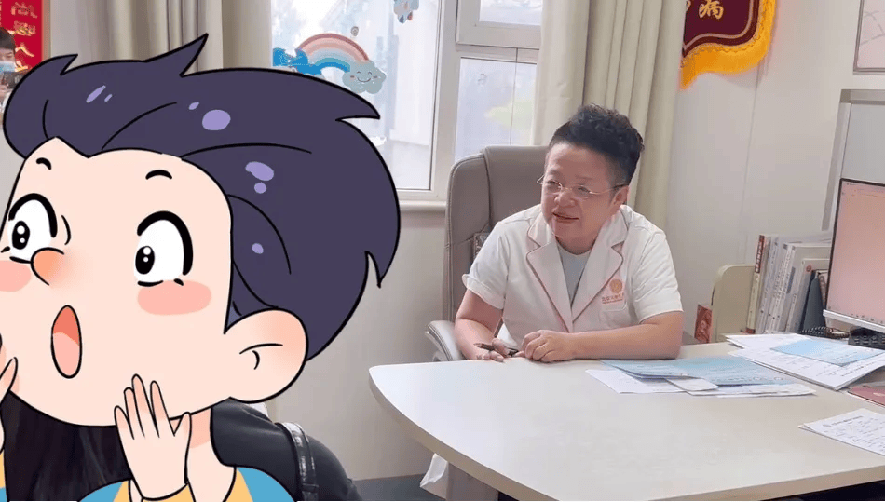The words of the noble speak slowly; a child who talks late is a noble and more intelligent? ❌
Will they naturally know how to speak when they grow up?
A 3-year-old child can only utter single sounds and occasionally calls out “dad,” “mom,” “grandpa,” and “grandma,” but cannot say anything else.
The elderly at home say: children who talk late are all smart; they will naturally know how to talk when they grow up❌!
When they reach the age for kindergarten, I thought it would be fine to go to kindergarten and play with other kids!
But I didn’t expect that after sending her to kindergarten, she still only played by herself and couldn’t communicate verbally… Is this autism?
The director, considering the specific situation, conducted a detailed examination and assessment for the baby:
The results showed: delayed language development + associated attention deficit.
Source: Internal materials
The systemic treatment plan is to enhance the baby’s language skills.
Combining Chinese and Western methods, physical therapy, sensory integration training, language training, cognitive training,
and multi-sensory training, etc.
After two treatment courses, during a follow-up examination, her personality became more cheerful, and she not only said, “I want to eat lollipops; grandma help me peel it,” but also recited ancient poems and sang nursery rhymes, far exceeding the expected treatment results.
Source: Internal materials
Here I want to remind more parents: If your child cannot speak or speaks late, you must take it seriously and should not hold any unrealistic hopes!
Delayed language development is a highly prevalent developmental issue during childhood; 40%-50% of children with language issues do not naturally improve with age, and its harmful effects involve learning, communication, and behavior.
If preschool children’s language delay is severe and has already hindered their learning, communication, and social relationships for their age, they are very likely to further develop into language disorders.
If language problems persist by the time they start elementary school, the risk of developing reading, writing, and a series of behavioral problems will increase.
1. Language and speech disorders are common developmental disabilities in childhood and can affect children’s future reading, writing, learning, and social skills.
2. Delayed language development and disorders mainly manifest as abnormal language development in children, with language comprehension or expression lagging behind peers; speech disorders refer to abnormalities in the clarity, fluency, and comprehensibility during language expression, primarily including articulation disorders, voice disorders, and fluency disorders.
3. In outpatient settings, many children often seek treatment due to ‘poor speaking,’ but this ‘poor’ needs to be analyzed in detail. If a child’s speech content is poor and expression is relatively simple, it falls within the realm of language problems; unclear or non-fluent pronunciation is considered a speech problem and requires specific evaluation for different issues.
01 Difference between language and speech
Language refers to the conventional system of symbols in human society, enabling people to communicate through the use of these symbols, such as words, phrases, and sentences. The language abilities we typically refer to include the acceptance, understanding, and expression of symbols. Modes of acceptance and expression include writing, reading, body language, and sign language, etc.
Language disorders refer to difficulties in communication, such as not understanding or having poor comprehension skills, lacking response or providing incorrect responses to others, facing significant difficulties in language expression, and being slow to speak, often presenting as delayed language development!
Speech typically refers to the ability to speak; that is, spoken language capability. Speech is the process of using grammar to express language verbally. When speaking, aspects such as voice, volume, and clarity of pronunciation are relevant and are related to the nerves and muscles that produce speech. When these muscles or nerves are damaged or undeveloped, it may lead to difficulties in speaking or unclear pronunciation.
Speech disorders refer to children who can understand and express language but have articulation, fluency, or voice issues. Common examples include articulation disorders, fluency disorders (such as stuttering), and pronunciation disorders (like abnormal voice pitch or tone).
02 When is it normal for a child to start speaking?
To determine if a child is starting to speak late, one must compare against the professional stages of language development to see if the child is lagging behind.
Around the age of 1, children begin to consciously and purposefully call out “dad” or “mom”;
Between 1-2 years old, they can understand and comprehend some words and can say and use their own name, such as “Baby wants”;
Between 2-3 years old, they can say short sentences of 3-4 words and answer simple open-ended questions, such as: What is this?;
Between 3-4 years old, they can listen attentively to age-appropriate stories and pretend to “read,” and can briefly describe things they see and events that occur;
If by 12 months a child still cannot…


